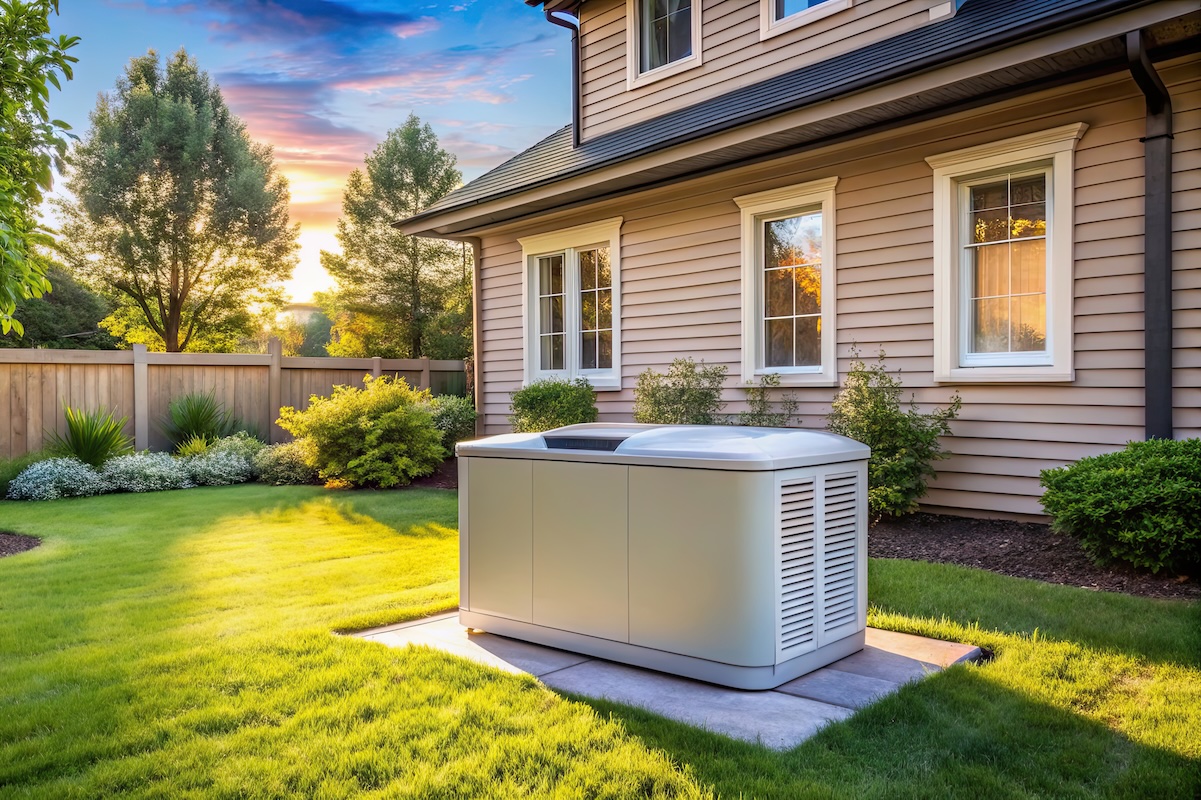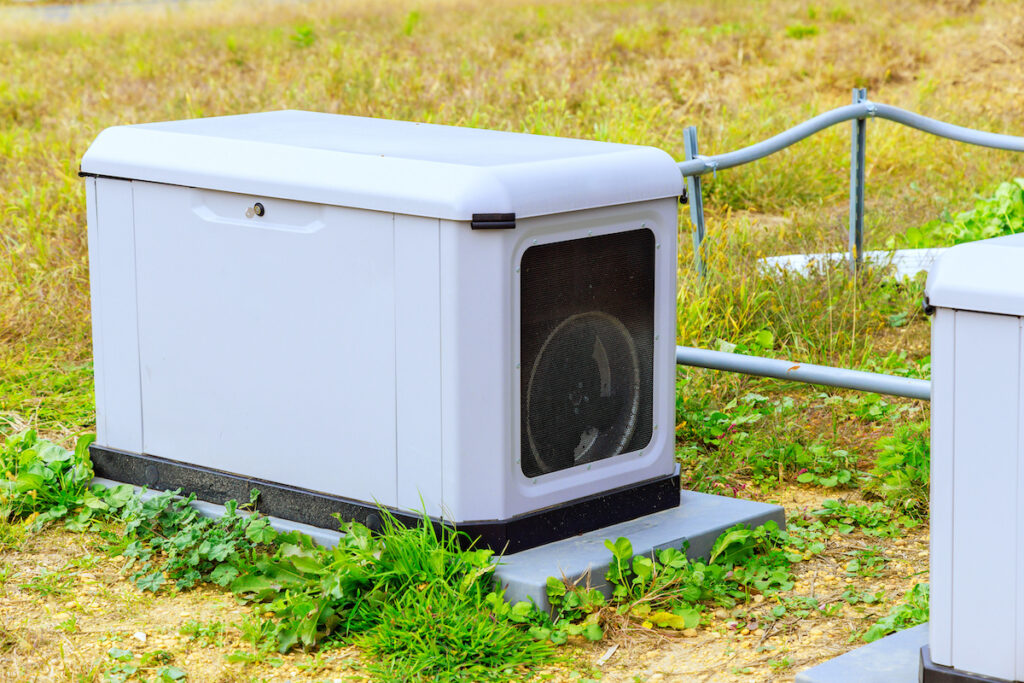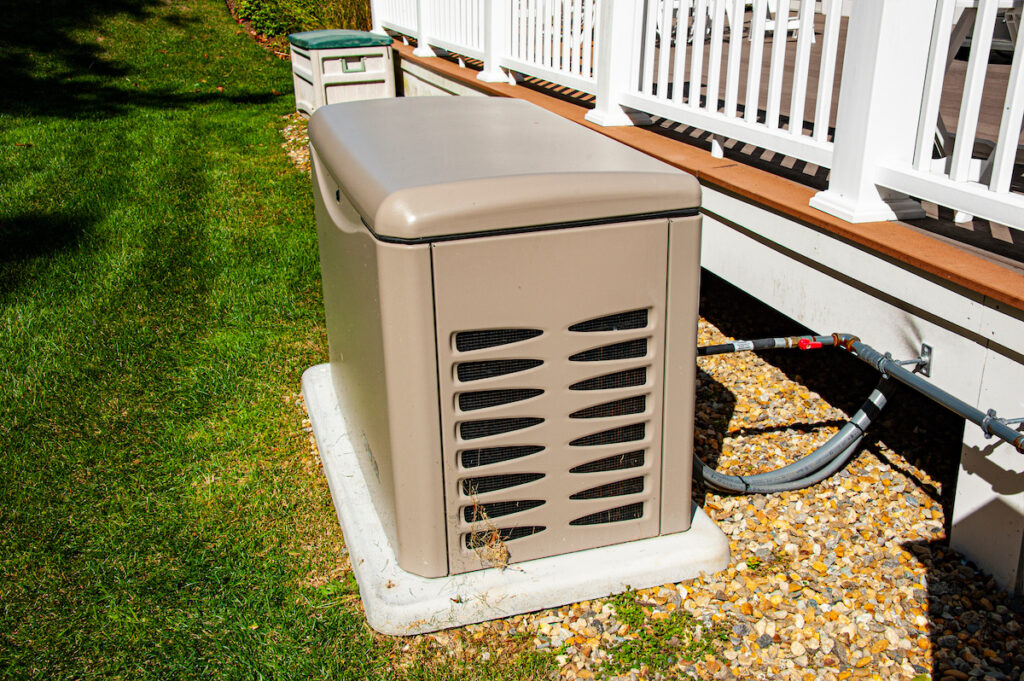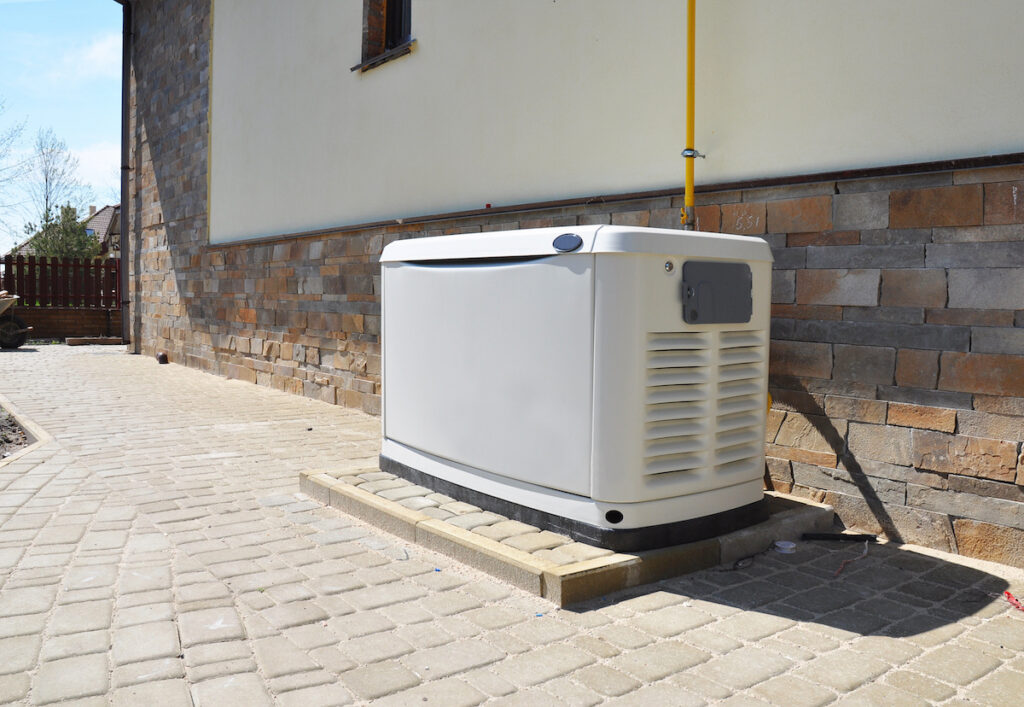
17 Jun Texas-Smart Tips for Home Backup Generator Installers
A whole home standby generator is one of the smartest investments you can make in Texas. The combination of extreme summer heat, seasonal storms, and a stressed power grid makes backup power a necessity, not a luxury. But here’s the truth many homeowners don’t realize: installing a standby generator isn’t a DIY job. It requires licensed professionals to ensure your system is reliable, safe, and legally compliant.
This guide walks Texas homeowners through everything they need to know before hiring a backup generator installer, from sizing and permitting to long-term service and system optimization.
Why You Can’t (and Shouldn’t) Install It Yourself
Texas building codes, local ordinances, and utility interconnection rules make it clear: installing a home standby generator is not a weekend project. Here’s why professional installation is mandatory:
- Permit Requirements: You’ll need electrical and possibly gas permits, depending on your location. These can only be filed by licensed contractors.
- Natural Gas Integration: Whole home generators typically tie into your natural gas line, which must be handled by a certified technician. Improper work can lead to gas leaks or fire hazards.
- Electrical Panel Interfacing: A generator is connected to your home through an automatic transfer switch (ATS). This equipment must be installed correctly to prevent backfeeding, which poses deadly risks to utility workers.
- Manufacturer Warranty Compliance: Most generator brands void their warranties if installation isn’t done by a certified professional.
- Insurance and Resale Considerations: Improperly installed systems can void homeowners insurance or raise red flags during inspections when selling your home.
In short, hiring a licensed electrician is non-negotiable. Fortunately, Texas has trusted professionals who specialize in this exact type of installation.

Generator Types and Fuel Considerations
Most Texas homeowners looking for reliable backup power end up choosing a natural gas-powered standby generator. Unlike portable generators, standby systems:
- Automatically detect outages and start within seconds
- Run on natural gas or propane, eliminating the need to refuel manually
- Are permanently installed outside the home like an HVAC unit
- Can power part of the house, or the entire thing, depending on size
While portable units are useful for camping or powering a fridge in a pinch, they’re not sufficient for whole-home use. A portable generator cannot support central air, large appliances, or integrated safety systems. Standby generators, on the other hand, are tailored for long-term power security.
In Houston and Dallas, the majority of installs use natural gas due to its availability and lower operational cost. But if your home doesn’t have a gas hookup, propane is a viable alternative.
How to Choose the Right Size Generator for Your Home
Generator size isn’t about square footage. It’s about what you need to power during an outage. A professional installer will walk you through this step, but here are the key categories to consider:
- Essential Circuits Only (10-14 kW): Powers the basics—refrigerator, some lights, a microwave, and maybe a small A/C unit.
- Partial Home Coverage (14-20 kW): Can handle major appliances, some HVAC, and water heating.
- Whole Home Coverage (20-30+ kW): Everything stays online, including central air, laundry, water heating, entertainment systems, and medical devices.
Each appliance or system has a wattage rating. Your installer will total your load needs and include a margin for startup surges. They’ll also help determine whether a single-phase or three-phase system is needed. Most residential systems are single-phase, but larger homes or small estates may need more.
What to Expect From a Professional Installer
Hiring a true specialist makes all the difference. A professional team, like Brotherlylove Electric, manages everything from the first walk-through to post-installation support. Here’s what a quality install process includes:
1. Site Assessment
- Evaluate power needs based on homeowner priorities
- Check gas line access, ventilation, and proximity to windows or vents
- Measure space for generator pad and ATS
2. Generator Selection
- Recommend a generator brand and size based on power needs and site constraints
- Discuss upgrade options such as Wi-Fi monitoring, load-shedding modules, or weatherproof enclosures
3. Permits and Scheduling
- Secure all required city or county permits
- Coordinate inspections and utility approvals
- Provide a firm project timeline and transparent quote
4. Installation
- Pour or place a concrete pad
- Deliver and mount the generator
- Run new gas and electrical lines
- Install the automatic transfer switch at the panel
- Program system controls and test functionality
5. Startup and Education
- Perform full test run simulating a power outage
- Walk homeowner through controls, alerts, and maintenance schedules
- Register the system for warranty
6. Ongoing Maintenance
- Offer service plans for annual oil changes, battery checks, software updates, and load tests
- Monitor performance remotely (if enabled)
- Prioritize warranty or emergency service calls for enrolled customers

Choosing a Reputable Installer in Texas
Not all electricians are qualified to install standby generators. Look for these credentials:
- Licensed and Insured: Never hire an unlicensed contractor for electrical work. This puts your home and your safety at risk.
- Generator Specialization: Choose a provider that installs standby generators regularly, not someone doing it as a side job.
- Experience with Your Local Utility: Some areas have utility-specific interconnection rules. Installers familiar with your power provider can fast-track the approval process.
- Service Area Fit: Companies that regularly serve your neighborhood will understand local permitting and inspection timelines. Brotherlylove Electric, for example, serves Houston, Dallas, and a wide radius around both metro areas.
- Transparent Pricing: Reputable installers offer free quotes, clear labor costs, and upfront breakdowns. Avoid vague or bundled estimates.
Smart Installation Strategies for Texas Homes
Texas homeowners face a unique combination of risks, from hurricanes in Houston to ice storms in Dallas. An experienced installer will account for regional weather and power conditions when designing your backup system. Some considerations include:
- Flood-Resistant Placement: In low-lying areas, generators should be elevated on concrete risers or piers to prevent damage during floods.
- Cold Weather Performance: Include cold weather kits or heated battery pads if you’re in areas where winter outages are common.
- Load-Shedding Modules: For homes with limited generator capacity, modules can shed non-essential loads during peak demand and prevent overload.
- Smart Monitoring: Add Wi-Fi monitoring so you can check system status, receive outage alerts, and track runtime via a mobile app.
Important Questions to Ask Your Installer
Before you commit, ask these questions to make sure you’re choosing the right team:
- Are you licensed and insured for generator installation in my city?
- Will you handle all permits and inspections?
- What generator brands do you recommend, and why?
- What is included in the quote—pad, gas hookup, ATS, and testing?
- How do you handle emergency service or warranty calls?
- Do you offer annual maintenance plans or remote monitoring?
Their answers will help you spot red flags or confirm that you’re in good hands.
Cost Considerations for Backup Generator Installations
The cost of a standby generator system in Texas depends on several factors:
- Generator Size: A 10 kW unit might cost $3,000, while a 22 kW model could exceed $5,500 (equipment only).
- Installation Complexity: Underground gas line routing, meter upgrades, or electrical panel work can add to labor.
- Transfer Switch: The ATS can range from $500 to $2,000 depending on type and features.
- Permits and Inspections: Usually folded into labor, but may be itemized depending on the jurisdiction.
Fully installed systems in Texas typically range from $8,000 to $14,000. Professional quotes should always include labor, permitting, parts, and testing, not just the generator itself.
Long-Term Ownership Tips
Once your system is installed, upkeep is simple but critical:
- Test Monthly: Run the system under load at least once a month
- Annual Maintenance: Oil changes, air filter replacement, spark plug check, and software updates
- Keep the Area Clear: Don’t store anything near your generator or block the intake vents
- Know the Runtime Limits: Generators can run continuously for days, but regular shutdowns during long outages extend lifespan
- Use Fuel Wisely: Avoid unnecessary runtime if you’re on propane. Monitor tank levels closely.
A professional electrician will go over all of this during your final walkthrough and should offer a routine service plan to keep things dialed in.

Why Professional Installation Protects Your Investment
A standby generator isn’t something you want to take risks with. Not only is it an expensive piece of equipment, but improper installation can cause major damage, violate building codes, or even endanger lives. A professional installer:
- Ensures code compliance
- Configures your system for optimal performance
- Avoids warranty issues
- Prevents safety hazards
- Handles utility approval and inspections
It’s a long-term system that protects your family, home, and comfort. It deserves to be done right the first time.
Talk to the Pros Who Know Texas Homes
Power loss in Texas isn’t a question of if, it’s when. And when it does happen, you’ll be thankful your backup generator was installed the right way, by the right people.
At Brotherlylove Electric, we specialize in whole home generator installations for families in Houston, Dallas, and across the surrounding areas. We don’t just sell equipment. We handle everything from load calculation and gas line connection to testing, maintenance, and post-installation support. Our team is licensed, insured, and experienced with both residential and commercial systems.
Let’s talk about your home’s needs and help you find the generator setup that keeps you powered, safe, and comfortable through the next storm or blackout.
Give us a call today to schedule your free estimate. We’re ready when you are.

